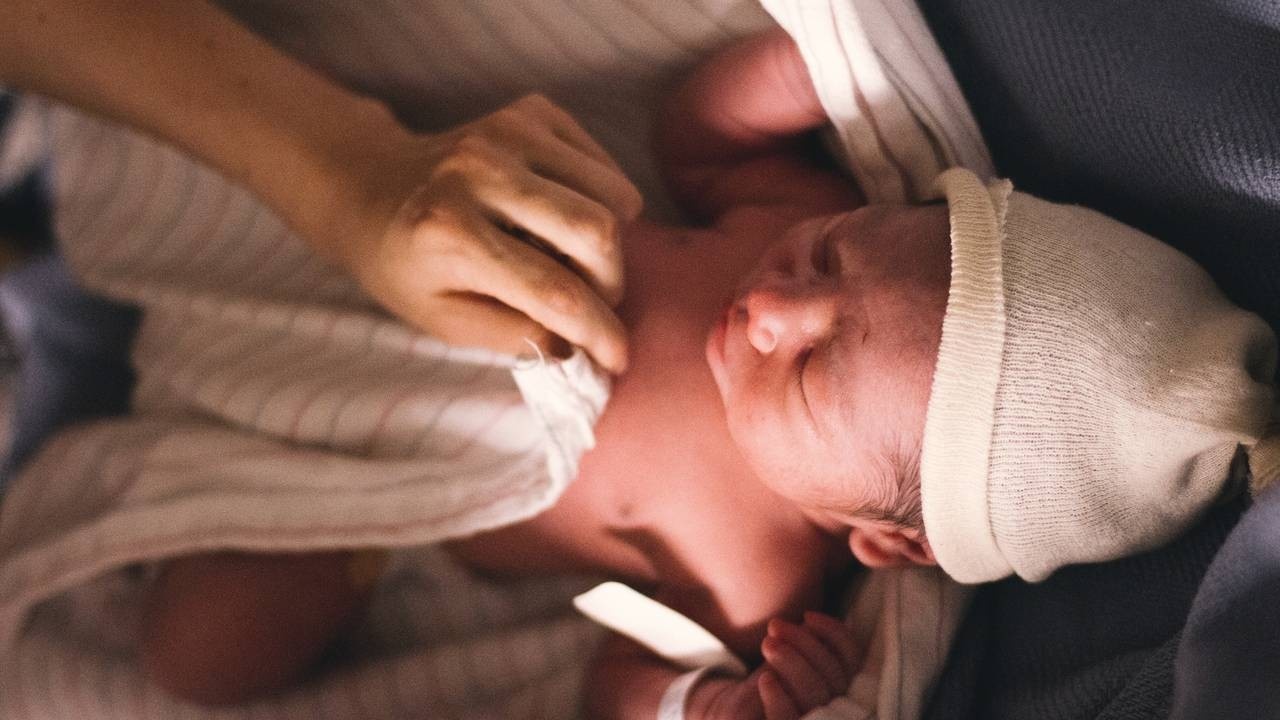What is Cradle Cap!? The Facts on Newborn Skincare
Nov 30, 2022
Dr. Alicia chats with Dr. Stephanie Liu, a Family Physician and Assistant Clinical Professor at the University of Alberta, with a special interest in pediatrics and maternal health. Dr. Liu identified a need for accurate, evidence-based child and maternal health information for Canadian mothers and created Life of Dr. Mom, a blog where she shares her experiences as a first-time Mom, providing parents with a credible medical source to help make informed decisions when it comes to the health of their families. She also founded By Dr. Mom, an evidence driven product line of books, clothes, and skincare products for children, including the new Soothing Beta Cream containing Beta-Glucan - a groundbreaking new skincare ingredient for the relief of dry, itchy, irritated skin, and eczema.
Listen to today’s episode for a full run-down on the magical properties of Beta-Glucan, Dr. Liu’s A - B - C - D approach to avoiding diaper rash, and her top recommendations for newborn skincare!
Newborn Skin Care Tips 101
The following is a quick rundown of general newborn skin-care tips:
- Avoid heavily scented creams and soaps as they can be very irritating on baby’s skin
- Use minimal soap! Babies are in a way self-cleaning, and don’t need heavy suds to wash
- Don’t over wash. You don’t need to bathe your baby every day! A couple of times per week is normally enough, making sure to give special care to their “dirty bits” (such as armpits, crevices, perineum, etc) where bacteria is more likely to collect
- Pat the skin dry, leaving a thin layer of moisture. Then use a fragrance-free cream to lock-in the moisture. No need to scrub dry with a towel!
- Do not put food on the baby's skin before it has been introduced by mouth. Doing so can cause an allergic reaction and adverse effects. If you’d like to use a very natural product for your baby’s skin, coconut oil has very low allergenic properties, though do be cautious as some have additives and preservatives that could be harmful.
The A - B - C - D - (E) Approach to Avoiding Diaper Rash
Just as the title suggests, the below is Dr. Liu’s handy A - B - C - D - (E) guide to avoiding diaper rash!
A - AIR: Allow for some diaper free time. Of course it is not always possible (and can cause a mess) but allowing diaper free time helps reduce irritation.
B - BARRIER: A nice topical cream, such as those that are zinc oxide based, create a barrier between the skin and diaper, reducing the risk of a rash. After zinc oxide cream is applied, it can leave a bit of a white film, but there is no need to rub/wipe it all off.
C - CLEANSING: Make sure all areas are clean, and that all poop is cleaned off as soon as possible to avoid irritation. Remember to use unscented and fragrance free products, as even baby wipes can be irritants if overused.
D - DIAPERS: Super absorbent diapers are helpful in keeping the moisture away and keeping baby’s skin happy.
(E) EDUCATION: This E is in brackets because it really falls on us, the providers, to educate our patients about which products are safest, proper skin care techniques, and to check-up that there aren’t any other underlying issues leading to baby’s skin irritation.
What is Cradle Cap?
Cradle cap is a very common skin condition caused by a type of yeast that makes the skin very dry and flaky - and like the name suggests it can occur on the scalp as well as further down on the forehead. The first thing to know is that Cradle Cap is not harmful to baby even if it goes untreated. If you’d like to treat it, the first step is choosing an emollient such as mineral oil or vaseline. Rub it into the flakey areas and with a little massage, and the “scaley” skin should be easy to rub off with a gentle comb or clean face cloth. In some severe cases, a steroid cream can be prescribed.
Eczema
If you have eczema, your child has a little bit of a higher risk of developing it as well. To reduce the risk of eczema or dry skin, make sure not to use overly warm water in the bath as it can actually dehydrate skin more. Pat the skin dry (don’t rub) and lock-in moisture with a fragrance-free cream. Remember that soap use can be minimal, and avoid cloth irritants like wool or strong detergents in the laundry - also consider a double rinse! Moisturize twice daily if baby is experiencing particularly dry skin.
What is Beta-Glucan?
Beta-Glucan is a fiber that has been shown in scientific studies to improve skin hydration and healing. Dr. Liu’s Beta-Glucan is sourced and made in Canada. It is extracted with a technique that uses air technology, requiring no chemicals or solvents. Currently they offer a Soothing Beta Cream with concentrated Beta-Glucan 453mL recommended by health care professionals for the relief of dry, itchy, irritated skin and eczema, as well as a Soothing Bath Treatment with concentrated Beta-Glucan.
For more tips and tricks for Dr. Stephanie Lui, check-out her blogs and give her a follow on Instagram!
- Life of Dr. Mom: Health and medical mom blog designed for the modern parent
- By Dr. Mom: Skincare and lifestyle products created by Dr. Mom
- IG: lifeofdrmom
Check-out the She Found Motherhood Newborn Sleep 101 Course to help create a sleep plan in advance and allow you to be ready for when the baby comes!
Don't miss a word!
New topics, stories, and information delivered to your inbox weekly.
Sign-up to receive our podcast and blog posts delivered to you directly via email!
We hate SPAM. We will never sell your information, for any reason.


